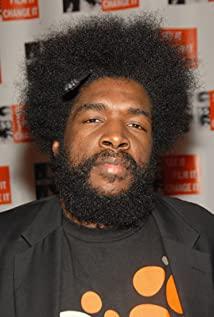In 2007, British genius jazz singer Amy Winehouse became the national pride of the United Kingdom when she won five Grammy Awards for her album Back to Black. But the subsequent alcohol and drug abuse scandals made her constantly harassed, ridiculed and consumed by the British media. In 2011, the 27-year-old "drug queen" died of a drinking overdose.
This movie records Amy's journey from fame to destruction.
There is neither a third-person narration to connect the segments, nor any images of the interviewees facing the camera — elements that are unavoidable in most documentaries.
It's not a preconceived documentary. It attempts to restore a completely objective image of Amy using images that existed before the film was made, so any introductory dialogue and interview clips are deliberately avoided and hidden.
What's more "bad" is that as a character documentary, it has almost no inspiration. In recent years, "Finding Sugar Man," "20 Feet From a Superstar," and "Finding Vivienne Meyer," which have been popular in recent years, show a positive image no matter how twists and turns the protagonist experiences.
In this film, Amy's smoking, drug addiction, alcoholism, and promiscuity are all not avoided. The main clue of the film is also the love-hate relationship between Amy and her ex-boyfriend Blake. Her talent, her music creation, seems to be due to her emotional experience. Vigorous and true, but somewhat like no one else, and never gave the audience chicken soup for the soul.
It is said that in order to make this film, the director interviewed more than 100 people around Amy, accumulating thousands of hours of interview material. But in the end, we can only use the voice of the interviewee to refine our understanding of Amy and the people around her, and to make our own moral judgments.
In fact, the newly created part of the film consists of only a few empty shots that mark various moments and places in Amy's life. These new images, combined with the old sound effects, connect the past and the present, as if traveling back in time to those exact times.
We often hear that a documentary filmmaker has spent years recording a piece of land, a group, and an event. The creation of such a documentary, itself, puts the author's existence "inside the event". From 2011, when Amy died, to 2015, when the film AMY was released, the intervening time, except for the interviews mentioned above, was basically spent on the editing table.
This collage-like documentary, which relies almost entirely on post-production, discards almost all re-created materials, and has a arrogant temperament that seems to be unwilling to "consume the dead", but it does indeed bring a sense of reality. The shock, and satisfy most audience's deep prying desire.
Of course, AMY is not just the legendary life of Amy that fans can see. It wants to express a lot of things. The media expresses personal alienation, family relationships, the music industry, and so on. But in front of Amy, a bright and lively individual, other things don't seem to matter. There is nothing new under the paparazzi spotlight.
Documentary itself is restrained and calm, and AMY is unusually cold in this category. This deliberately suppressed emotion is simply mourning for Amy himself.
The older you get, the less hostile you are in watching movies. After trying to understand what it's like to make a movie, I understand more that every movie has something to be appreciated. It will no longer be required to be all-encompassing, impeccable at every level. As long as there is a scene, a dialogue, or the scheduling of a scene that impresses me, it is not worth watching.
Fo you I was a flame, love is a losing game
.
When I heard this lyric in AMY, I was actually moved. This feeling is not only due to this song, otherwise, just open Xiami and listen to the song. To a certain extent, this movie is like a footnote to these songs for me, allowing me to compare and understand when listening to the song, and finally enter it with different emotions. Amy and Blake were on and off, but in the end they couldn't get together. When the song "Love is a Losing Game" sang, Amy sang at the Mercury Awards, and she and Blake were cross edited into a heartbreaking montage.
Another example is the song "Back to Black". I have heard it all the time, but only this time in this movie can I understand the background and mood of Amy's creation of this song. I understand it every word. meaning. Like a acquaintance who sings her affectionate and twists in front of you. These things can be literalized, but they must not be as meaningful as these real flowing images.
View more about Amy reviews











